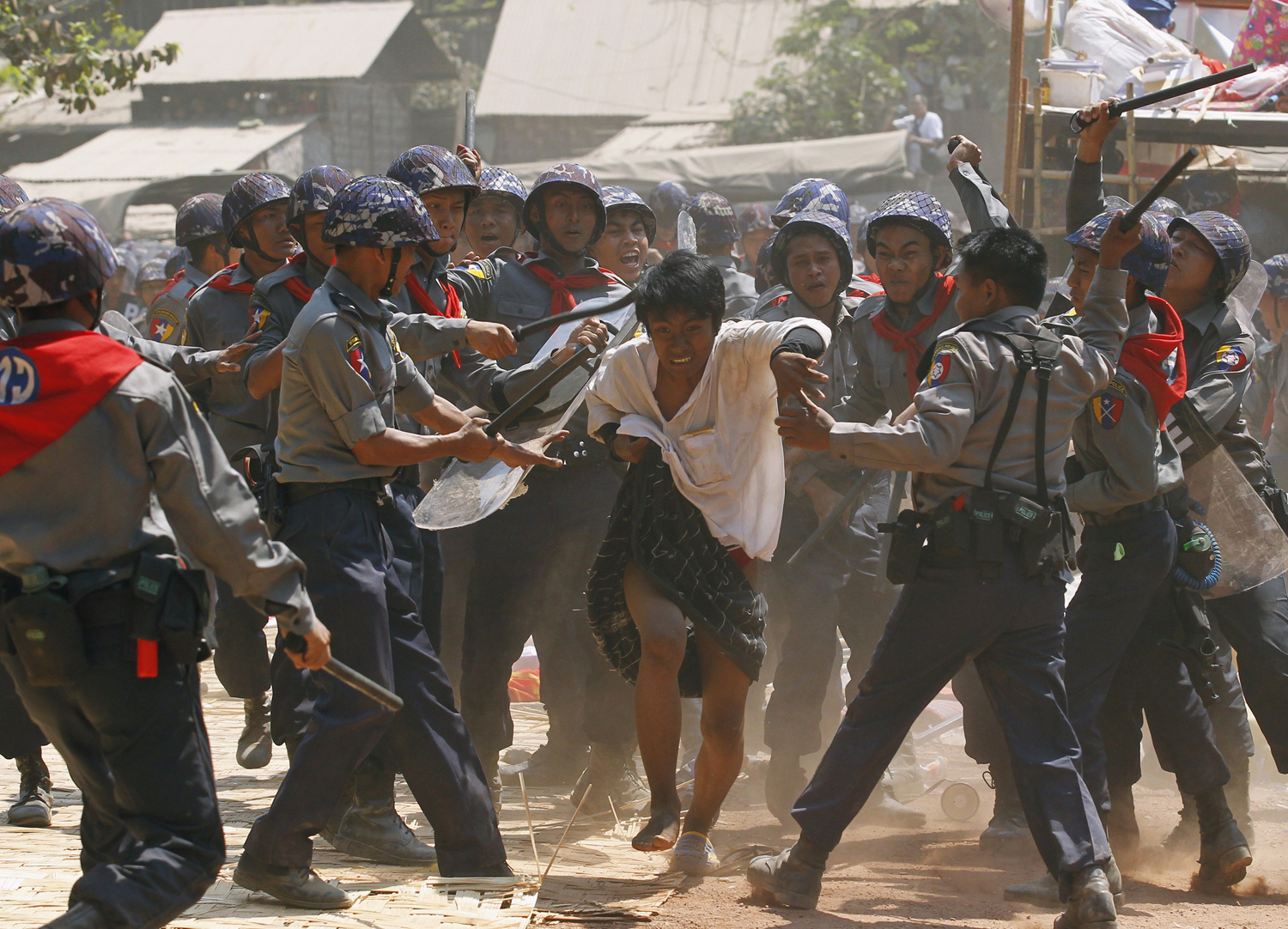
The U.S. State Department condemned Monday the brutal suppression of a protest by students and monks in the Burmese city of Letpadan.
The demonstrators were calling for educational reform in the former military state.
Video captured by local journalists shows police officers and what appear to be vigilantes using batons, fists and kicks to round up dozens of activists, only hours after student leaders and officials appeared to have reached a deal that would allow the protesters to travel to the country’s largest city, Rangoon.
“Freedom of assembly is an important component of any democratic society,” State Department spokesperson Jen Psaki told reporters on Monday. “We condemn the use of force taken against peaceful protesters.”
The Letpadan protest erupted just days after President Barack Obama paid homage to an earlier student movement in Burma that was crushed by the country’s ruling junta in 1988.
“Young people in Burma went to prison rather than submit to military rule,” declared Obama during a soaring address commemorating the U.S. civil rights marches in Selma on Sunday.
Students from across Burma, which is formally known as Myanmar, have been participating in widespread protests for months, calling for changes to the National Education Bill. Critics of the legislation say the law severely hampers students’ abilities to form unions, forbids institutions from lecturing in local languages and overly centralizes power in government hands.
Monday’s crackdown followed a brutal episode last week, when pro-government thugs assaulted activists rallying near Rangoon’s city hall in solidarity with the students in Letpadan.
The use of vigilante groups was common during the days of military rule in Burma, and their continued existence underscores fears for the future of Burma’s democratic reforms.
“Burma’s reforms are looking increasingly shaky day by day,” stated Brad Adams, Asia director at Human Rights Watch, in response to the crackdown on the Letpadan protests
The heavy-handed police action is also embarrassing for the country’s European partners. Last year, the European Union sponsored a multimillion-dollar initiative to train Burma’s police force in crowd-management techniques, supposedly to help protect the “democratic rights of citizens.”
“Whilst training can be given, the E.U. cannot make decisions on the ground,” said the E.U. Delegation to Myanmar. “We have discussed recent events with the Minister of Home Affairs and the Myanmar Police Force, emphasizing the need for negotiation, mutual understanding and compromise.”
More Must-Reads from TIME
- Donald Trump Is TIME's 2024 Person of the Year
- Why We Chose Trump as Person of the Year
- Is Intermittent Fasting Good or Bad for You?
- The 100 Must-Read Books of 2024
- The 20 Best Christmas TV Episodes
- Column: If Optimism Feels Ridiculous Now, Try Hope
- The Future of Climate Action Is Trade Policy
- Merle Bombardieri Is Helping People Make the Baby Decision
Contact us at letters@time.com